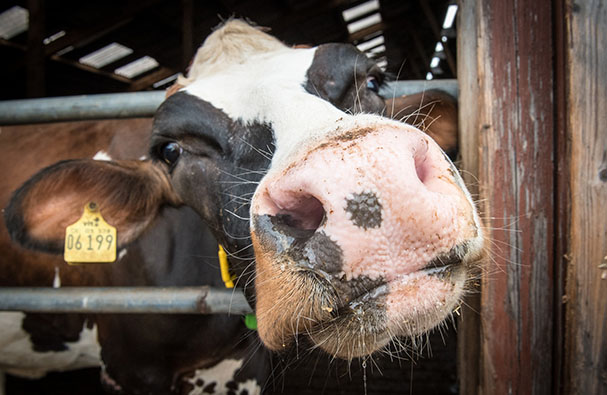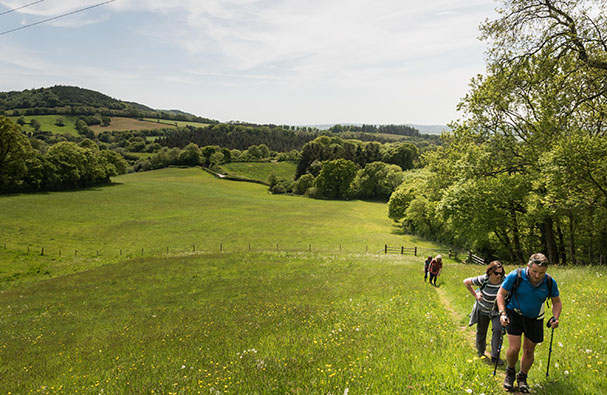The Greater horseshoe is one of the UK’s biggest bats, with a wingspan of almost 40cm. They were once common across southern England but changes in land-use, such as urban development and a move away from cattle grazed pastures and hay meadows, has led to their disappearance from much of the countryside. This project is a 5-year initiative working across the county to secure a better future for the rare Greater Horseshoe Bat.
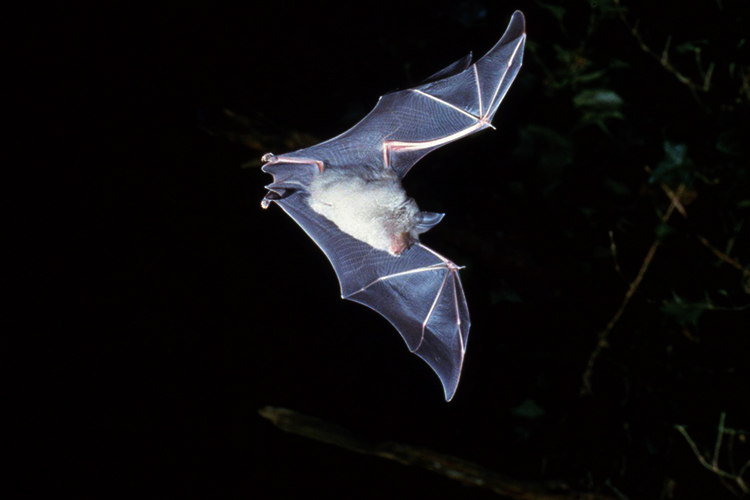
OVERVIEW
The European population of Greater Horseshoe bats has crashed by 90% over the last 100 years. This has left them clinging on in just a few special landscapes – luckily Devon remains a stronghold. Our county still has a third of the 6,500 greater horseshoe bats that remain in the UK.
Focused on 11 priority locations within Devon, it’s the job of the Devon Greater Horseshoe Bat project to conserve key roost sites and safeguard the surrounding countryside that acts as vital feeding grounds for the bats. Within in the East Devon National Landscape, the core areas are on the coast between Beer and Sidmouth and inland around Southleigh, Northleigh and Colyton.
The project is committed to providing advice and assistance for landowners to help manage, restore and create the networks of habitat the bats need. Working with communities and schools, the project is also passionate about raising the profile of the greater horseshoe bat, enabling everyone to play their part in its conservation.
OBJECTIVES
- To improve the landscapes that the bats need to travel through and feed in. The project will work with local farmers and communities to improve and conserve these features. This will be to the benefit not only of greater horseshoe bats but also Devon’s wider wildlife and our treasured landscapes.
- To develop policy, work with landowners, provide advice, inform people about the bats, deliver education programmes and create habitat improvements across Devon.
KEY DATES
- 2016 – Project start date
- 2021 – Project end date

PROJECT ACTIVITIES

School Initiatives
The project has worked with Farway, Branscombe and Beer Primary Schools and Millwater School; Children work towards ‘Bat Buddy Awards’, with Millwater School receiving a gold award this year.
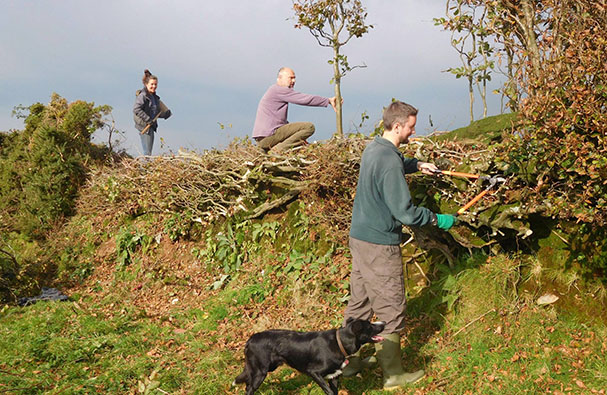
Practical Conservation
- Hedge planting and laying – working with partners and volunteers to help improve bat commuter routes.
- Supporting the bats with purpose built & adapted roost buildings

Bat Walks
Find out how the bats use the local countryside to feed and travel. You can also learn how conservation work for the bats benefits other rare species by enhancing connectivity and improving the quality of the habitat.

Bat Emergence Talks
For real night owls, bat emergence talks have been organised outside roosts, giving people a chance to see and count the bats at dusk as they come out to feed.
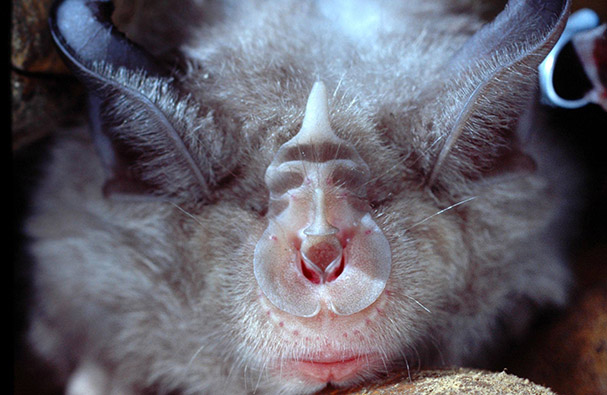
Bat Detecting Surveys
From April-October, people can borrow an SM4 bat detector and take part in the annual Devon bat survey. Visit the project website for more information: www.devonbatproject.org

Community involvement
Villages and towns can become bat-friendly communities by carrying out lots of different activities. This could be as simple as encouraging bat-friendly gardening or building a ‘bug hotel’. Find out more.
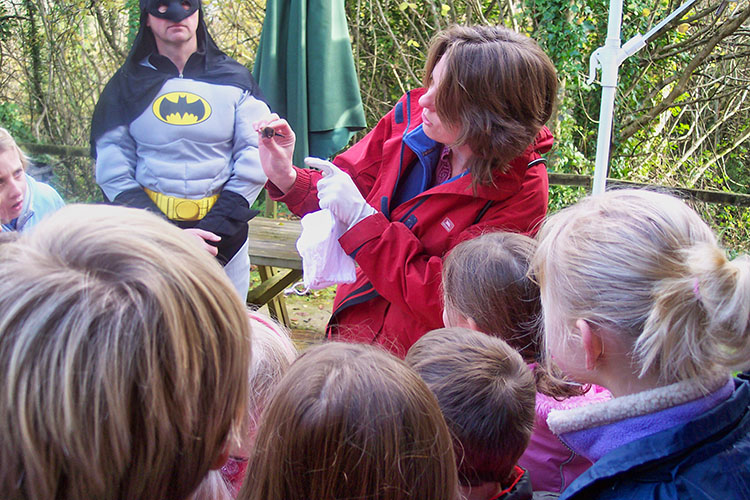
GET INVOLVED
The project needs the communities that have these rare and wonderful animals in their midst to help us provide a better future for Devon’s greater horseshoe bats
We are now looking for schools and community groups to come forward and become champions for their local bats – helping to improve bat habitats, taking part in bat detecting surveys and other citizen science initiatives.
CONTACT
Visit www.devonbatproject.org for more information, including bat facts and video of the bats in their summer roosts.
Anyone living close to one of our Devon greater horseshoe bat areas and who wishes to help, should contact the project’s Community Engagement Officer.
WORKING TOGETHER
Led by the Devon Wildlife Trust, the Devon Greater Horseshoe Bat Project Partnership involves 18 different organisations.
PROJECT FUNDING


More to Explore
Our National Landscape Projects
We lead, partner and support projects that focus on a wide range of themes, including landscape and heritage, environmental quality and climate, biodiversity, recreation and tourism.
Outdoors & Active
Whether you prefer walking, cycling, running or playing, everyone feels happier and healthier when they spend time in nature being more active.
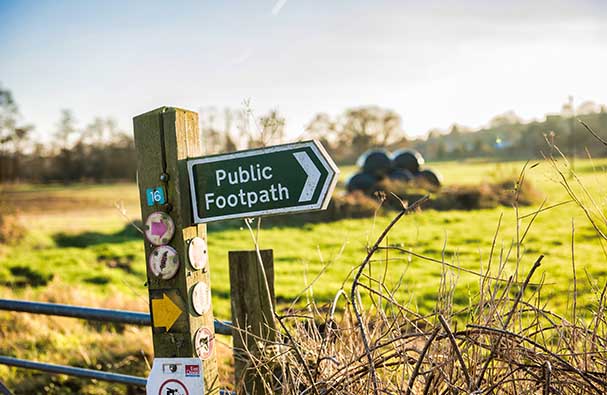
East Devon Way
Discover the hidden gems of East Devon and explore this much loved walking route that links 40 miles of public footpaths, trails and bridleways.
